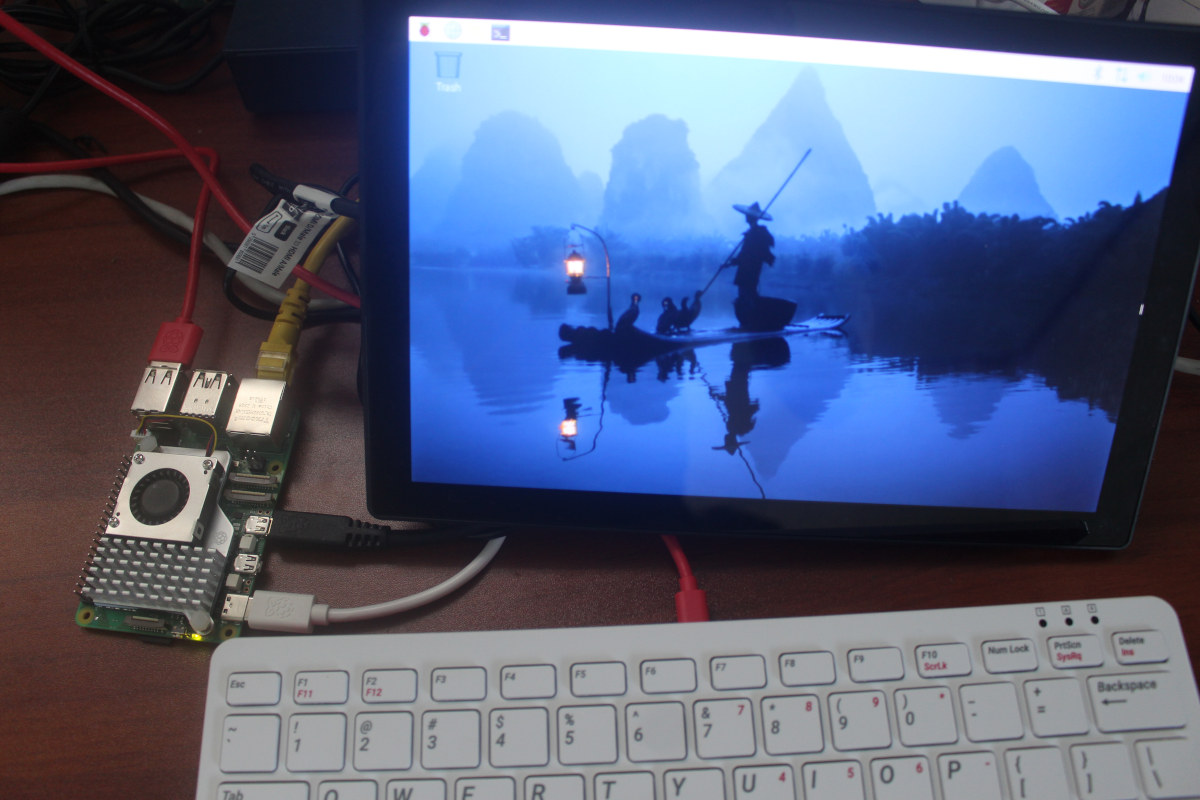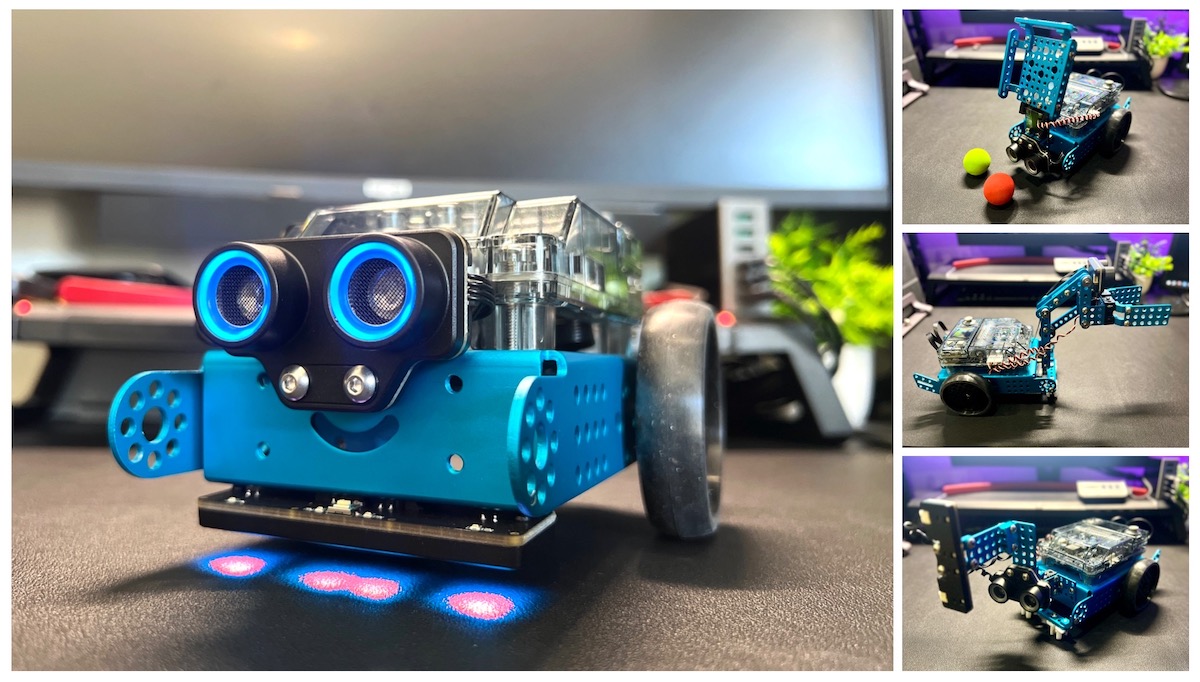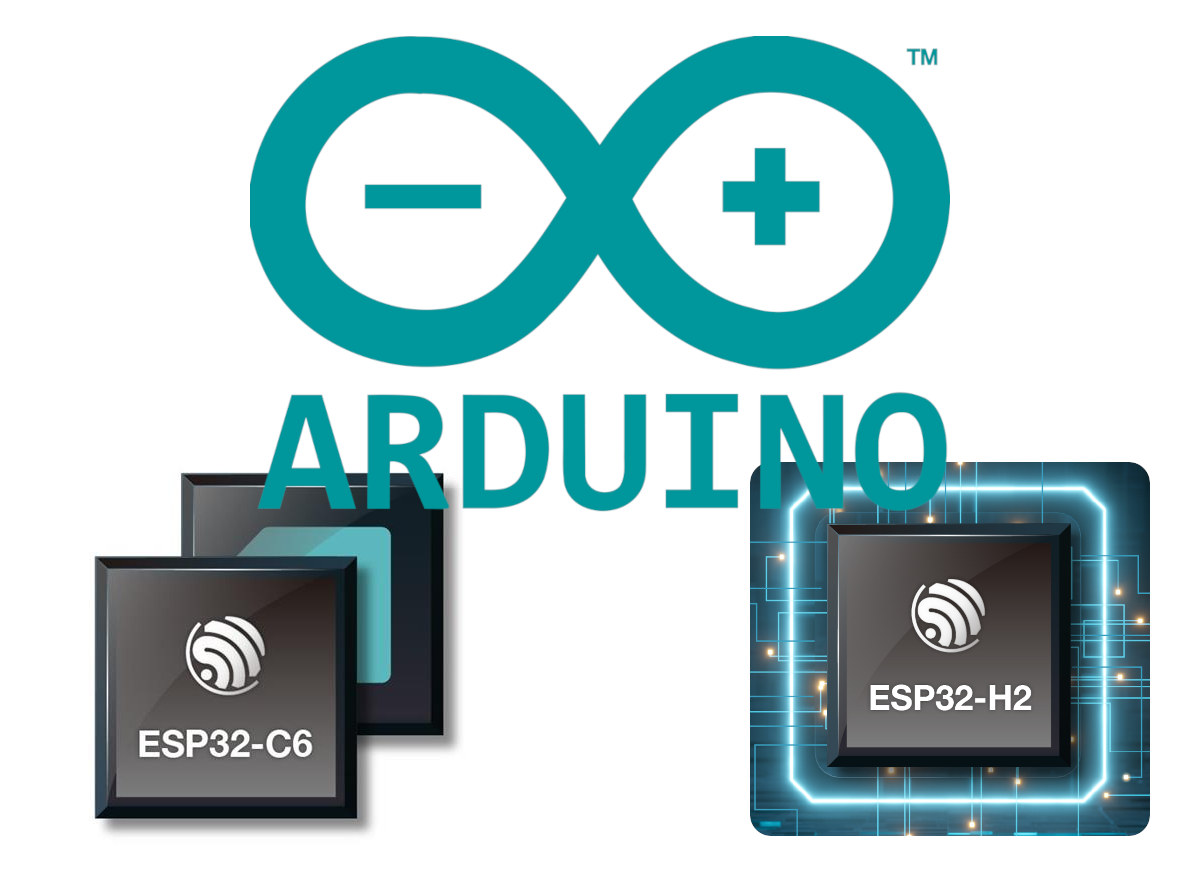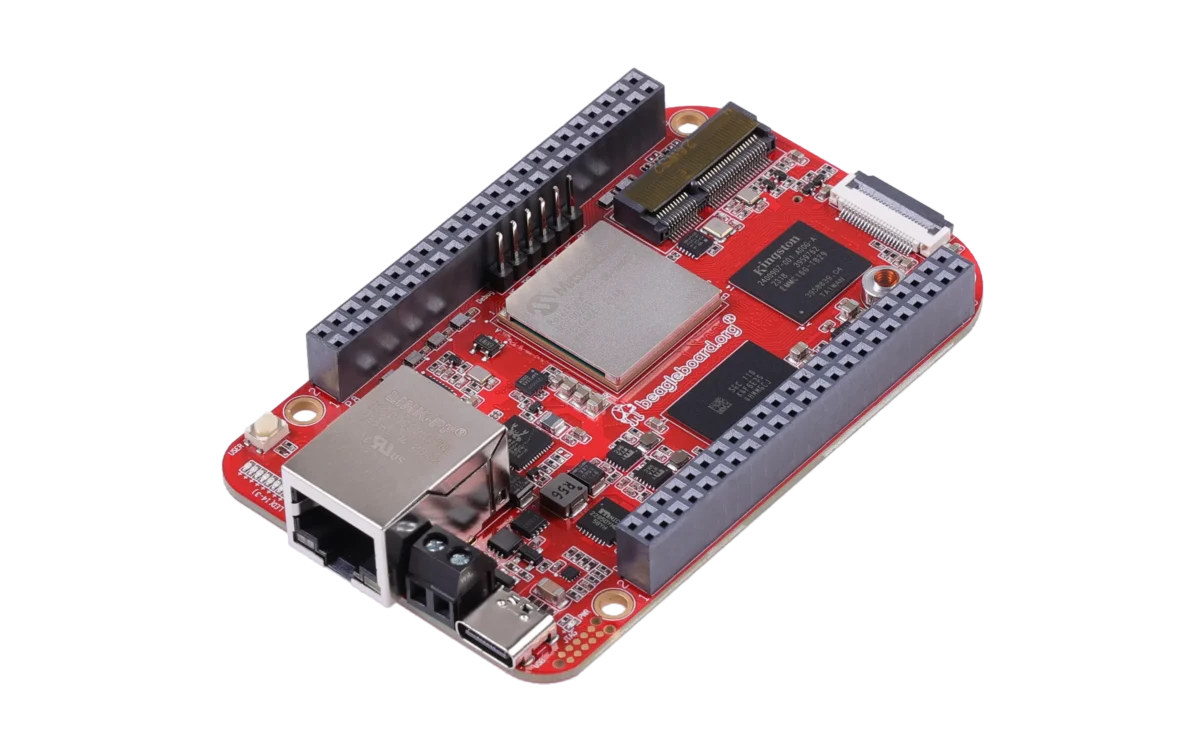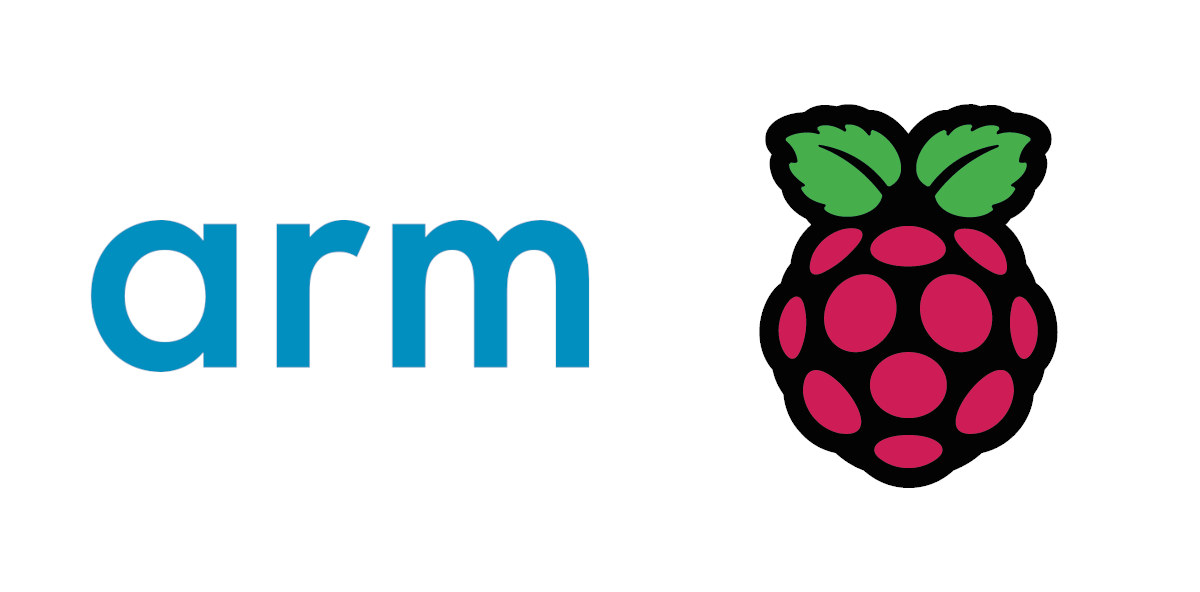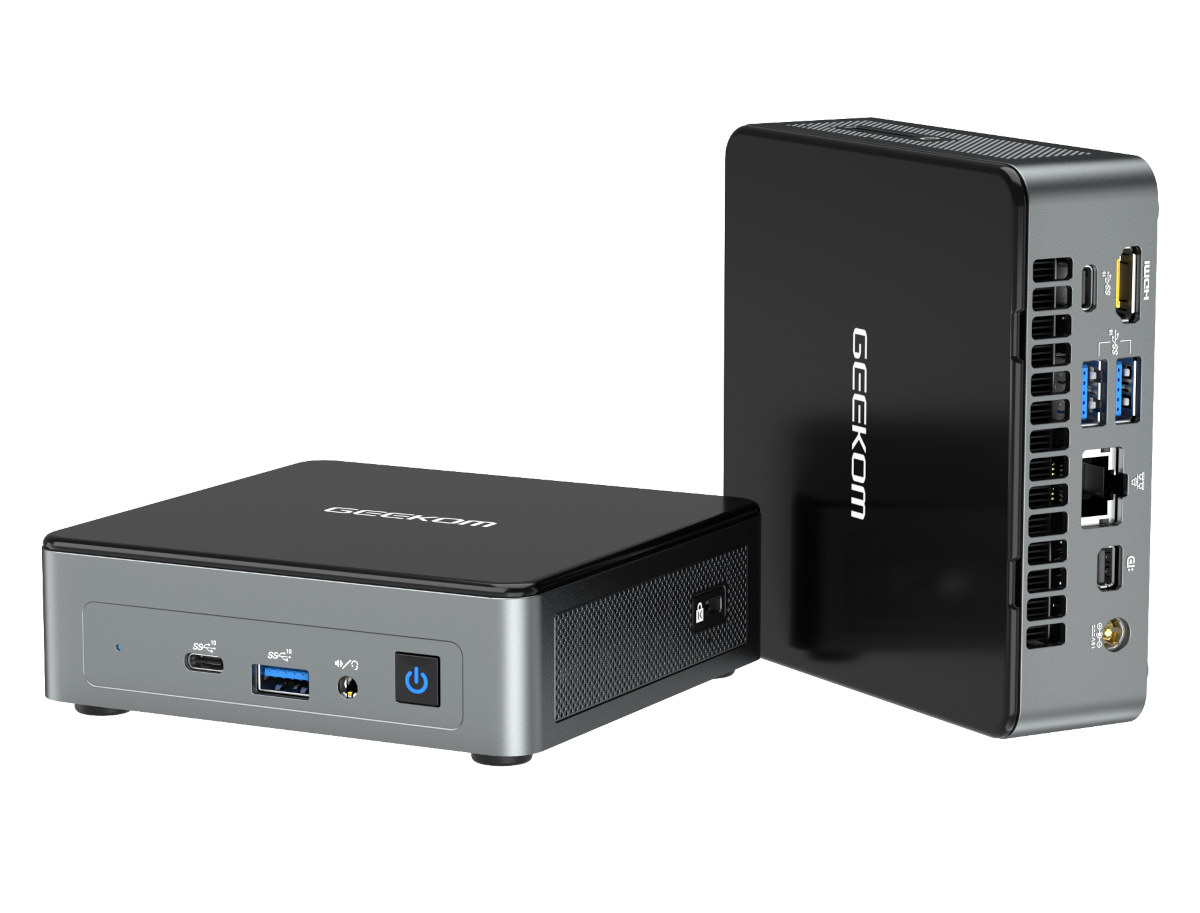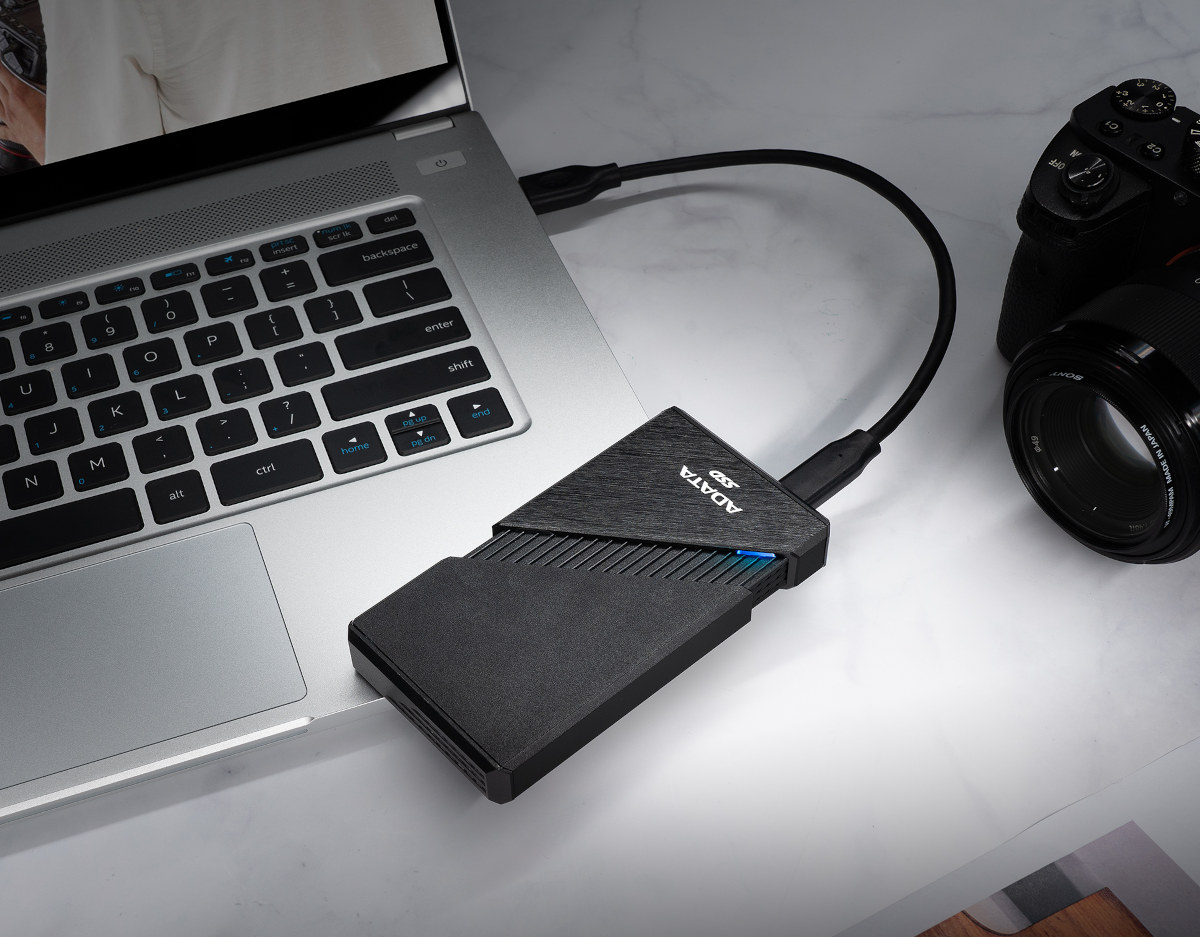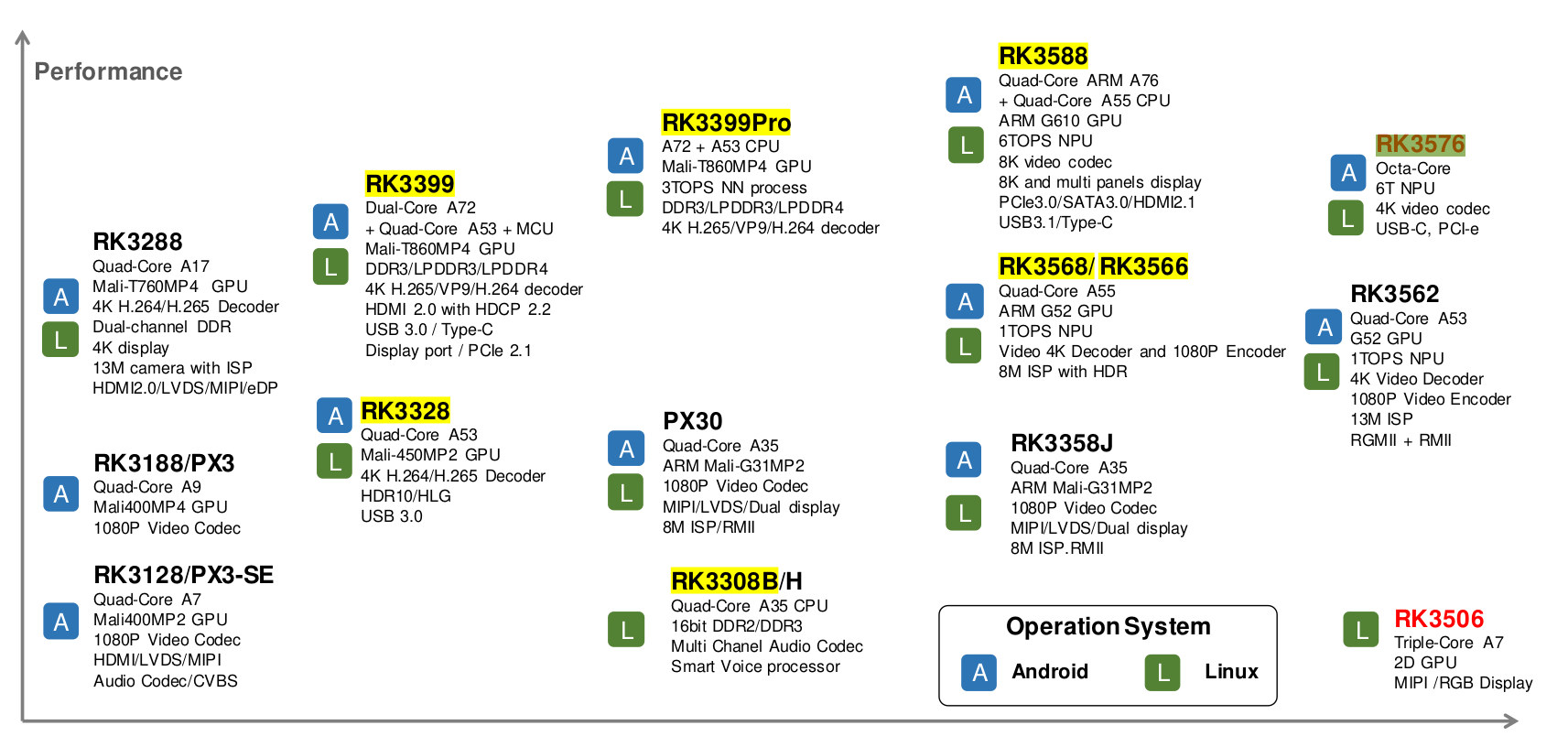A few days ago I finally went through the Raspberry Pi 5 kit I received last September going through all the items and booting it with Raspberry Pi OS bookworm. I’ve now had time to perform more tests to check out the performance with benchmarks and test various features on the Raspberry Pi 5. So I’ll report my experience in the second part of the review and compare the Raspberry Pi 5 SBC to the Raspberry Pi 4 and some other Arm Linux SBCs.
System information in Raspberry Pi OS Bookworm
Last time around, I installed the Raspberry Pi 5 in its official case, but for most of the testing, I decided to go back to the bare board fitted with its active cooler since it’s the best cooling option as we’ll see further in the review.


